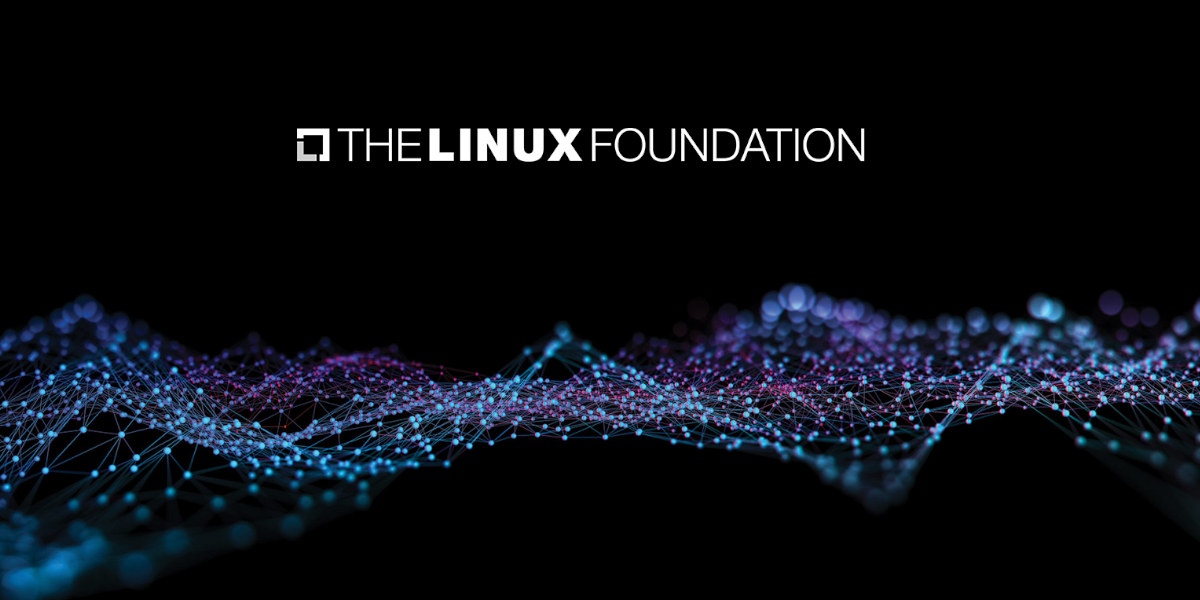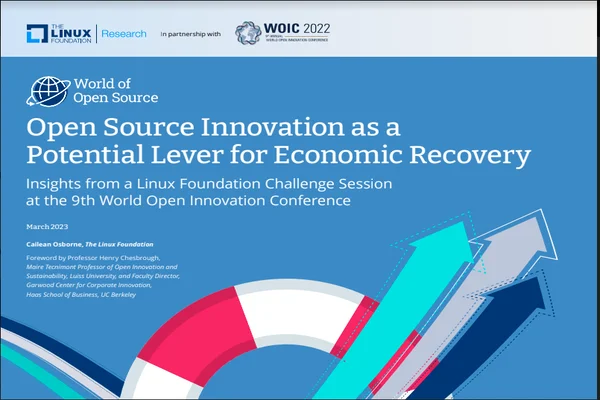The Linux Foundation: Promoting Open Source Innovation
December 4, 2024



 Education & Online Courses,ELearning
Education & Online Courses,ELearning

Open-source software has emerged as the foundation of technological innovation and collaboration. The Linux Foundation is at the center of this movement, a non-profit organization dedicated to encouraging open-source projects, creating sustainable ecosystems, and pushing technological progress.
What is The Linux Foundation?
The Linux Foundation, founded in 2000, is a multinational consortium dedicated to speeding up the spread of Linux and collaborative software development. While it began to promote the Linux kernel—a project founded by Linus Torvalds—it has now evolved to serve a plethora of open-source projects spanning a wide range of areas.
With over 1,000 corporate members, including IT titans such as Google, IBM, Microsoft, and Intel, the Linux Foundation acts as a hub for innovation, providing resources, training, and community-building opportunities to its members.

Mission & Vision
The Linux Foundation’s fundamental aim is to enable developers and companies to create and utilize open technology.
⚡ LAST CHANCE! Transform Your Skills & Save up to 60% SAVE NOW
Its goals include:
Fostering Collaboration: By providing a neutral ground, the foundation encourages companies and developers to work together on solving global technological challenges.
Advancing Open-Source Projects: It hosts and supports projects that drive technological innovation across industries.
Ensuring Sustainability: The foundation promotes long-term sustainability in the open-source ecosystem through funding, governance, and community support.
Key Contributions
1. The Linux Kernel
The Linux Foundation’s origins trace back to its support for the Linux kernel, the cornerstone of the modern computing world. Today, Linux powers over 90% of the world’s supercomputers, most of the internet’s servers, and billions of mobile devices through Android.
2. Open-Source Projects
The foundation hosts over 1,000 projects, covering fields like artificial intelligence, cloud computing, blockchain, networking, and security. Notable examples include:
Kubernetes: The world’s leading container orchestration platform.
Hyperledger: A blockchain framework designed for enterprise-grade applications.
Node.js: A popular JavaScript runtime for server-side applications.
3. Training and Certification
The Linux Foundation offers training programs and certifications to upskill developers in emerging technologies. From Kubernetes to DevOps, these certifications are industry-recognized and help bridge the skills gap in tech industries.
4. Community and Events
Through events like Open Source Summit, KubeCon + CloudNativeCon, and Hyperledger Global Forum, the Linux Foundation fosters community engagement, encouraging knowledge-sharing and collaboration among developers and businesses.

Initiatives Driving Change
1. Open Source Security Foundation (OpenSSF)
With cybersecurity threats on the rise, the foundation launched OpenSSF to improve the security of open-source software. It focuses on best practices, vulnerability management, and building secure software supply chains.
2. LF Networking
LF Networking consolidates leading open-source networking projects under a unified umbrella. It aims to create interoperable networking technologies that are vendor-neutral and cost-effective.
3. LF Energy
Dedicated to decarbonizing energy systems, LF Energy works with utilities and tech companies to develop open-source solutions for energy transition and efficiency.
4. Open AI and Data Initiatives
The Linux Foundation fosters ethical AI development and open data sharing through projects like LF AI & Data, which supports frameworks for machine learning, deep learning, and analytics.
The Impact of The Linux Foundation
On Industry
The Linux Foundation has catalyzed technological advancement in several industries:
Healthcare: Projects like OpenMRS allow for collaborative development of medical record systems.
Automotive: The Automotive Grade Linux (AGL) initiative promotes innovation in connected vehicles.
Finance: Hyperledger blockchain architectures provide secure and transparent financial transactions.

On Society
The Linux Foundation supports open-source technology that contribute to societal advancement through:
Bridging the Digital Divide: Open-source tools empower underprivileged communities by providing inexpensive technology.
Driving Sustainability: Collaborative efforts tackle global concerns such as energy efficiency and environmental protection.
The Future Of The Linux Foundation
The Linux Foundation is well-positioned to continue its leadership role in open-source development. With the growing acceptance of edge computing, artificial intelligence, and blockchain, the foundation’s efforts are likely to expand and adapt to new technical boundaries.
Emerging Trends
Open-Source AI Development: Democratizing access to AI tools and frameworks.
Green Computing: Driving innovations in energy-efficient technologies.
Global Collaboration: Expanding open-source participation in developing regions.
Challenges Ahead
Despite its successes, the Linux Foundation faces challenges such as ensuring diversity in open-source communities, addressing funding gaps for smaller projects, and safeguarding against proprietary interests overshadowing open collaboration.
How to Get Involved
Participation in The Linux Foundation’s ecosystem is open to individuals and organizations alike. Here are some ways to engage:
Join a Project: Contribute code, documentation, or expertise to ongoing projects.
Attend Events: Network with peers and gain insights at foundation-hosted conferences.
Upskill: Enroll in training programs to enhance your skills in emerging technologies.
Sponsor Projects: Companies can support projects financially or by providing resources.

The Linux Foundation is more than just an organization; it symbolizes the power of cooperation and shared invention. By promoting open-source development, the foundation has been a driving force behind some of today’s most breakthrough innovations. As we look ahead, the foundation’s role in democratizing access to technology, encouraging global collaboration, and promoting sustainability will be important. Whether you’re a developer, a business owner, or a technology enthusiast, working with The Linux Foundation allows you to contribute to a better, more connected world.

Leave a Comment